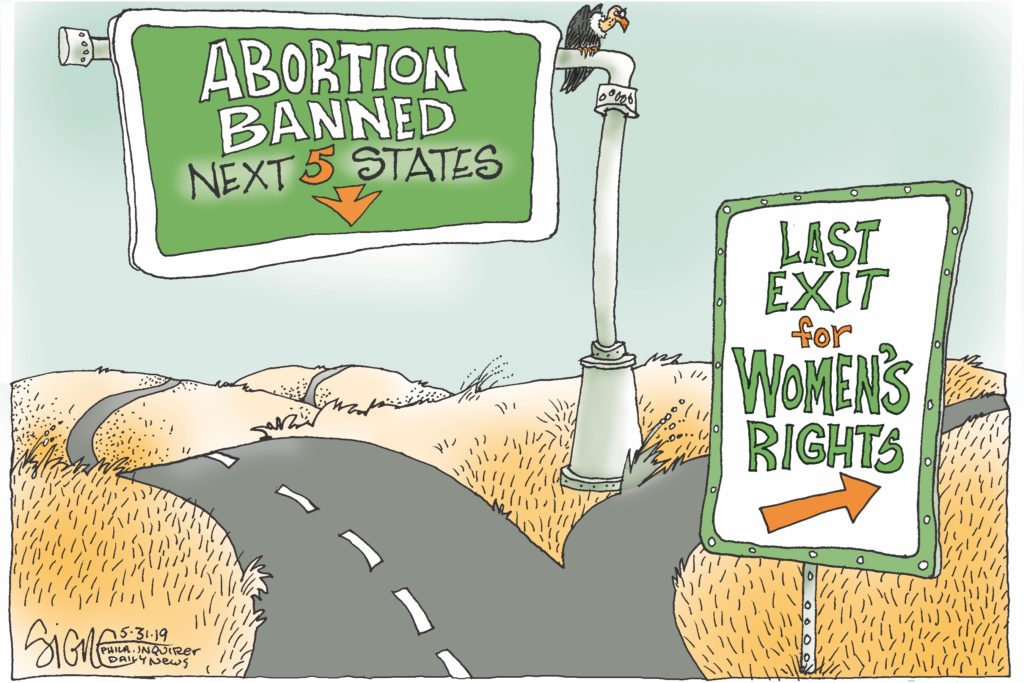
The media have done a good job of describing the implications of the Supreme Court’s abolishment of Roe to individuals. However, I have read little about the effects this regrettable decision will have on society.
First of all, it means that as many as 140,000 people will not have desired abortions. This estimate was published by the Guttmacher Institute and is hopefully too high. People all over the country are working to help refer women to abortion services in states that still allow this important healthcare procedure. However, there are many who cannot afford the time away from home or money to travel that a referral would entail.
Let’s estimate what this might mean to our population growth. Currently there are about 4 million births in the USA. Let’s say that 40,000 women are able to travel to receive abortion services or otherwise end up not giving birth. This would mean that the number of births is increased by 100,000 or almost 3 percent. We need to decrease the number of unintended births, not increase them!
Other than increasing the growth rate of the USA, will these added births have any effect on society? This is difficult to know, but there is reason to believe that many of these new people will not turn out to be the best citizens.
Dr. Henry David studied unintended pregnancies in Czechoslovakia during the 1960s, with the help of Czech researchers. Those researchers did all the detective work to find the mothers, gain their permission to test their children, and continue to follow them for all those 30 years.
Abortion was legal but needed approval by a state agency. A woman could appeal if her request for an abortion was denied —however, some women were denied twice. David’ group looked at these unwilling mothers, their children and controls (mothers with wanted pregnancies), following them for over 30 years. The results are available in “Born Unwanted”, and are summarized: “The overall findings suggest that, in the aggregate, denial of abortion for unwanted pregnancy entails an increased risk for negative psychosocial development and mental well-being in adulthood.” The children of unwanted pregnancies had more brushes with the law, were less satisfied with their lives, had less education and more mental health problems.
Another project, the Turnaway Study, focused on women who wished to abort a pregnancy. These women were refused abortion care because their pregnancies were too far advanced for the clinic they attended. The Study looked at families after the birth of a denied abortion and found that they didn’t thrive well after the unwelcome addition. There was poor maternal bonding, and the mothers’ other children’s development suffered. Furthermore, these families were more likely to live below the federal poverty level than the mothers who received abortion care. I’ll write more about this revealing study in the future.
A possible cause of the decline in crime in the 1990s was popularized by freakonomics.com. Males from age 18 to 24 are most likely to commit crimes, and the theory is that the decrease in crime 18 years after Roe v. Wade in 1972 was due to increased access to abortion. The decrease in the births of unintended children may have resulted in better citizens and less criminal behavior as kids reached adolescence and adulthood.
As a young doctor, I took care of a toddler who had been scalded. I remember his young mother saying “I didn’t want him.” She told me that he was fussy and she thought a bath would help quiet him, but instead he became fussier. Out of desperation she turned up the hot water to punish her son. She deeply resented the baby who prevented her from doing normal teen things.
The Freakonomics hypothesis is controversial. One analysis of the data suggests that the benefits to society were confined to the decline in teenage mothers. Certainly, my teen patient’s son had suffered from being unwanted. I have no follow up information on how he turned out, however.
Decreased access to safe abortion services will be a tragedy for some people and our society may suffer.
©Richard Grossman MD, 2022
